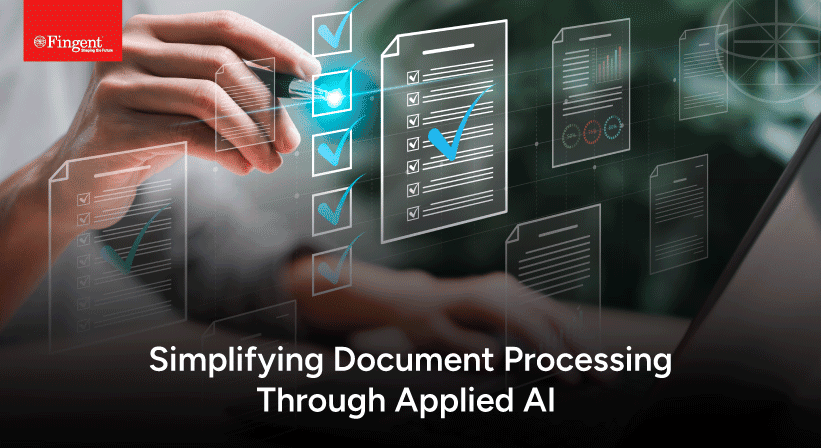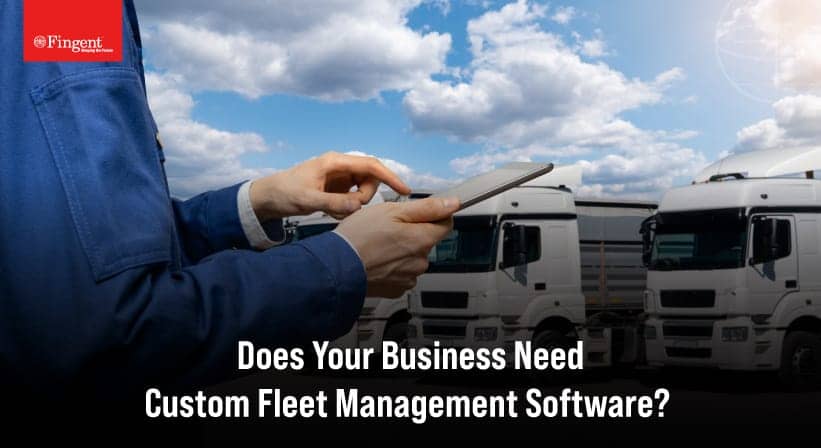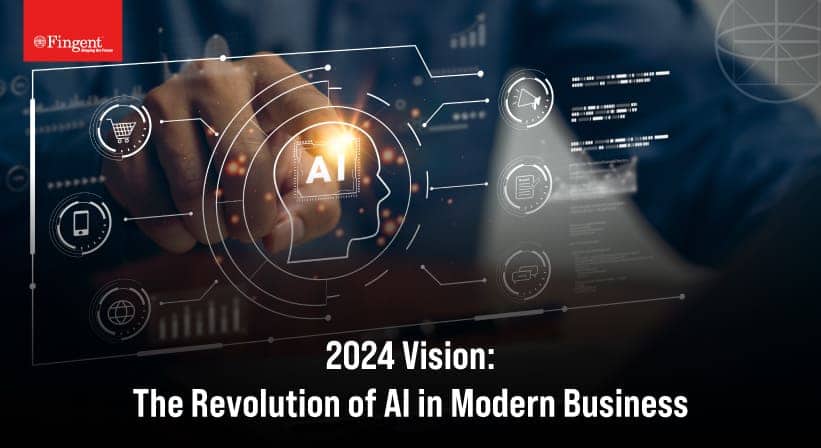How AI and IoT are Creating an Impact on Industries Today
Can Empowering AI and IoT Bring In Competitive Advantage To Industries?
It takes more than forward-thinking employees to gather customer purchasing trends and improve the customer experience. International companies depend on Artificial Intelligence (AI) and the Internet of Things (IoT) to drive data and forecast the next big wave of trends.
Studies predict Asia and North America to lead in the innovation of AI and IoT. Also, embedded AI in support of IoT smart objects will reach $4.6B globally by 2024.
Major vendors of IoT platforms such as IBM, Amazon, and Microsoft have started offering integrated AI capabilities like ML-based analytics. Scalable digital platforms are designed daily to understand the way customers think while using predictive maintenance in real estate, eCommerce, healthcare, and other industries.
It’s time for us to share the leading examples of how businesses use AI and IoT, and how these technologies benefit them.
AI and IoT: Leading Use Cases
Smart Cities: Making Life Easier
What happens when AI and IoT run a city? It turns into a smart city. Smart city technology can solve an energy crisis, help manage traffic, or improve the healthcare experience.
One example of a smart city is the use of Advanced Transportation Controller technology linked to a 5G network in Los Angeles. There are road-surface sensors throughout the city, and cameras that monitor traffic, sending information to traffic management systems. Municipal employees can now analyze the data of traffic congestion and issues with traffic lights in high traffic areas. Overall, this improves the quality of living in Los Angeles and helps a business run smoothly without delays.
Convenience in Property Management
One of Fingent’s clients WRI Property Management, a US-based single-family rental provider with 10,000+ leased properties and 20,000+ managed houses experienced many challenges. Here are a few of the issues WRI Property Management faced:
- Tenant eviction
- Rent collection/accounting
- Scheduling property inspections
- Leasing properties
- Screening tenants
What happened next? Fingent introduced an advanced software platform, Honey Badger. The AI and IoT technology-supported WRI managers to conveniently communicate with multiple parties, renovating properties, view lives auction feed, track the construction of new properties, etc.
5G Network Vehicle Safety and Security
Machine Learning technology is improving the autonomous vehicle experience. How does it work? An automobile can stop when a driver is in dangerous tragic weather or unexpected situation.
The 5G network can cause the brakes of a car to operate by tracking vehicle sensors of other drivers near prevent or relieve car crashes.
The network can also send drivers a traffic update to use detours and avoid certain roads that are under construction or is unsafe.
AI and IoT Business Benefits
1. Guaranteed Security and Safety
A company’s highest priority is protecting data in the workplace. As Artificial Intelligence scans security footage, IoT can close gates or doors if an intruder attempts to enter the premises of a head office.
Organizations are now using machine-to-machine communication to determine potential security threats with an automated response to hackers or intruders.
An example of AI and IoT in banking security is the detection of fraudulent activity in ATMs to communicate updates to law enforcement to protect customers.
The unexpected workplace accidents can be prevented by using sensors that monitor safety hazards as employees work. Employees at some organizations now wear wearable devices that alert the management of undetected dangers such as carbon monoxide released into the air on a work site.
2. Convenient Shopping Automated Experience
Online shopping is more convenient than ever as websites personalize real-time suggestions to consumers based on a customer’s shopping history. As a result of this investment, Kinsta predicts that by 2021, Artificial Intelligence in e-commerce will increase sales to $4.5 billion from $2.3 billion in 2017.
3. Enhanced Healthcare Experience
NovitaCare, a Netherlands based healthcare company that treats patients with chronic and multiple disorders, wanted to improve the caregiver experience using an effective online platform.
With Fingent’s help, NovitaCare now can communicate with non-profit organizations, patients, providers and researchers with an online platform that is HIPPA compliant.
4. Simplified Management Of Supply Chain
The supply chain industry has experienced challenges in managing unexpected events that happen due to inaccurate forecasting. A solution to the problem is implementing AI and IoT.
Supply Chain Digital recently stated the following about these technologies:
“Intel highlights that the world of IoT is growing rapidly, from 2 billion objects in 2006 to a projected 200 billion by 2020.”
“AI is on most companies’ radars, with 78% of organizations implementing it to enhance operational efficiency by at least 10%.”
The use of real-time devices will feed data to executives to help create contingency plans for preventing unexpected challenges in the industry. As a result, the supply chain and a company’s reputation can experience fewer impacts.
How Fingent Helps Businesses Achieve Success With AI and IoT?
Fingent has mastered the art of technology infrastructure to help companies resolve AI and IoT processes. As a result, it creates efficiencies in managing smart devices.
Implementing these technologies are small changes that can have a huge impact on your business. The ability to use raw data to understand customer behavior and forecast trends in the market can improve customer loyalty. Also, companies can track employees working in multiple departments and locations across the globe by partnering with Fingent.
Fingent is confident that AI and IoT work in your business context by delivering technologies to enable solutions in the cloud, networks and gateways, heterogeneous device support, systems capabilities, and data analytics.
To Conclude
Business Insider predicts that there “will be more than 64 billion IoT devices by 2025, up from about 10 billion in 2018.”
Gartner observes that in three years (by 2020), more than 80 percent of enterprise IoT projects will incorporate at least one AI component. Artificial Intelligence and the Internet of Things is used to improve the safety of drivers on the road, enhance healthcare experiences, automate and streamline enterprise processes, stop intruders from hacking into IT systems or large organizations, and in numerous other ways.
The combination of these technologies not only delivers a superior customer experience, but also forecasts what customers want in real-time, improves their experience of living in smart cities, maintains a high safety rating in challenging workplaces, and reinforces physical and cybersecurity. AI-IoT duo also avoids any unplanned downtime, increases operating efficiency, helps develop new products and services, and improves your risk management.
Are you looking for an AI and IoT partner? Get in touch with Fingent experts today for a streamlined and error-free IoT implementation for your business.
Stay up to date on what's new

Recommended Posts

18 Apr 2024 B2B
Applied AI For Document Processing
"It's becoming increasingly clear that AI is the future, and almost everything else is a sideshow." - World-renowned computer scientist Geoff Hinton AI has taken over almost every aspect of……

25 Jan 2024 Logistics B2B
The Manifold Benefits of Custom Fleet Management Software in Supply Chain
Cost, Compliance, Efficiency, and Manpower – These are the pillars on which a fleet management business stands. A compromise on any of these can mean the whole business topples with……

10 Jan 2024 B2B
AI Trends Set to Transform Businesses in 2024
In the dynamic realm of modern business, the profound impact of artificial intelligence (AI) continues to unfold, reshaping industries and redefining conventional practices. As we step into 2024, the transformative……

27 Dec 2023 Logistics B2B
The Game-Changing Role of Custom Inventory Management in Supply Chain
Supply chain management is a complex web of processes that involve the seamless coordination of procurement, production, distribution, and more. Among these, inventory management stands out as a pivotal aspect……
Featured Blogs
Stay up to date on
what's new










